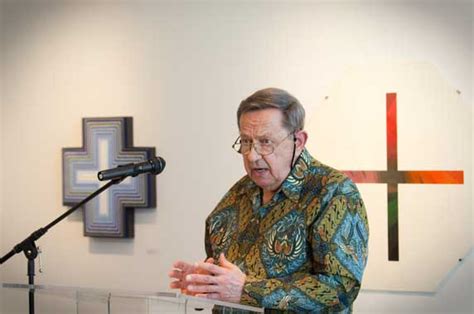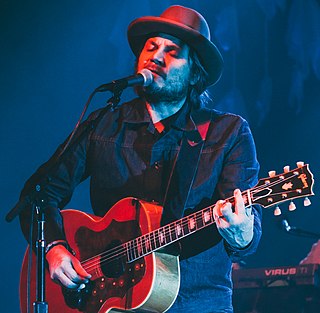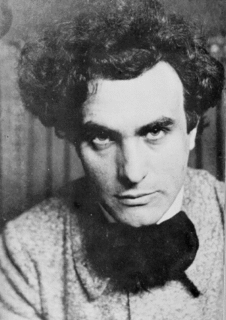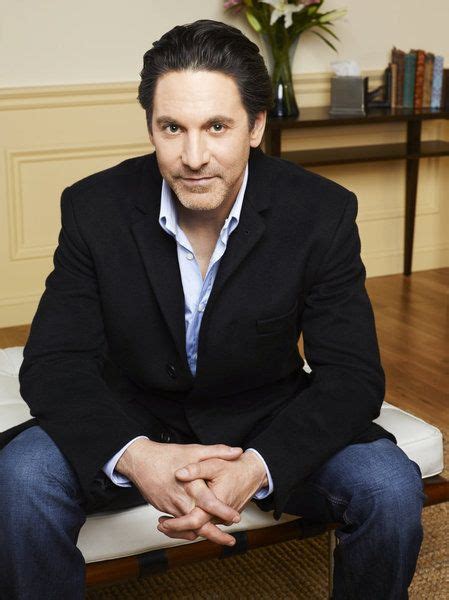Top 289 Communal Quotes & Sayings - Page 5
Explore popular Communal quotes.
Last updated on April 19, 2025.
I imagine a future where many of us will call ourselves dancers and collaborate to make an art which concerns itself with primary areas of life... for me, peace is a communal work process, a collective vision. The dance itself tries to exemplify a few of these methods in a truly grounded and practical way so that the people can say: yes, there are prospects of survival.
The fateful question for the human species seems to me to be whether and to what extent their cultural development will succeed in mastering the disturbance of their communal life by the human instinct of aggression and self-destruction ... One thing only do I know for certain and that is that man's judgements of value follow directly from his wihes for happiness-that, accordingly, they are an attempt to support his illusions with arguments.
Once a century, all of a certain kind of bamboo flower on the same day. Whether they are in Malaysia or in a greenhouse in Minnesota makes no difference, nor does the age or size of the plant. They flower. Some current of an inner language passes between them, through space and separation, in ways we cannot explain in our language. They are all, somehow, one plant, each with a share of communal knowledge.
Our way out involves both resistance and renewal: saying no to what is, so that we can reshape and recreate the world. Our challenge is communal, but to face it we must be empowered as individuals and create structures of support and celebration that can teach us freedom. Creation is the ultimate resistance, the ultimate refusal to accept things as they are. For it is in creation that we encounter Mystery.
A faith project in Christian artistry will never be healthy among us until there is a living sense of Christian community, and the misplaced emphasis on the 'individual' has been corrected. God has set things up so that cultural endeavour is always a communal enterprise, done by trained men and women in concert, gripped by a spirit that is larger than each one individually and that pulls them together as they do their formative work.
We always worry that we are copying someone else, that we don't have our own style. Don't worry. Writing is a communal act. Contrary to popular belief, a writer is not Prometheus alone on a hill full of fire. We are very arrogant to think we alone have a totally original mind. We are carried on the backs of all the writers who came before us. We live in the present with all the history, ideas, and soda pop of this time. It all gets mixed up in our writing.
I think there will be a reaction - a reaction will set in against this communal dissociation. You know, man doesn't stand forever, his nullification. Once, there will be a reaction, and I see it setting in, you know, when I think of my patients, they all seek their own existence and to assure their existence against that complete atomization into nothingness or into meaninglessness. Man cannot stand a meaningless life.
Thus society is born, as something required by nature, and (because this nature is human nature) as something accomplished through a work of reason and will, and freely consented to. Man is a political animal, which means that the human person craves political life, communal life, not only with regard to the family community, but with regard to the civil community.
I don't experience much loneliness, oddly. Sometimes I have thought I was lonely and it turned out I was in reality wanting a snack, just like sometimes I have thought I was mad and it turned out I was actually wearing too many sweaters. I've always been very content in the company of my own thoughts, and I prefer to spend much of my time alone. But I do like conversation - for the exercise, for the spark, for the let's-see-where-it-takes-us, for being able to dip into communal creativity when you're tired of your own air.
This focus on money and power may do wonders in the marketplace, but it creates a tremendous crisis in our society. People who have spent all day learning how to sell themselves and to manipulate others are in no position to form lasting friendships or intimate relationships... Many Americans hunger for a different kind of society - one based on principles of caring, ethical and spiritual sensitivity, and communal solidarity. Their need for meaning is just as intense as their need for economic security.
But what does it mean to be on God's side? I believe it starts with focusing on the common good - not just in politics, but in all the decisions we make in our personal, family, vocational, financial, communal, and, public lives. That old but always new ethic simply says we must care for more than just ourselves or our own group. We must care for our neighbor as well, and for the health of the life we share with one another. It echoes a very basic tenet of Christianity and other faiths - love your neighbor as yourself - still the most transformational ethic in history.
A multitude of uniform, unidentifiable houses, lined up inflexibly, at uniform distances, on uniform roads, in a treeless communal waste, inhabited by people of the same class, the same income, the same age group, witnessing the same television performances, eating the same tasteless prefabricated foods, from the same freezers, conforming in every outward and inward respect to the common mold.
I do think some games are works of art, although their medium is visual rather than verbal. Both games and novels allow the reader/player to become a protagonist in the theater of the imagination. Both build worlds. In my opinion, the big difference between game and novel is in narrative structure. Communal role-playing games are open-plan without an end. A novel - at least the kind I write - has a closed structure with a beginning, a middle, and an end. I like that closed structure, and I feel I can say more with it.
The public realm in America has two roles: it is the dwelling place of our civilization and our civic life, and it is the physical manifestation of the common good. When you degrade the public realm, you will automatically degrade the quality of your civic life and the character of all the enactments of your public life and communal life that take place there.
I'm a pragmatist. I think, as a woman, you have to be more careful. You have to be more communal, you have to say yes to more things than men, you have to worry about things that men don't have to worry about. But once we get enough women into leadership, we can break stereotypes down. If you lead, you get to decide.
Germans grew reluctant to stay in communal ski lodges, fearing they might talk in their sleep. They postponed surgeries because of the lip-loosening effects of anesthetic. Dreams reflected the ambient anxiety. One German dreamed that an SA man came to his home and opened the door to his oven, which then repeated every negative remark the household had made against the government.
A man is likely to mind his own business when it is worth minding. When it is not, he takes his mind off his own meaningless affairs by minding other people's business.This minding of other people's business expresses itself in gossip, snooping and meddling, and also in feverish interest in communal, national and racial affairs. In running away from ourselves we either fall on our neighbor's shoulder or fly at his throat.
I'd been influenced by reading books on art and colonies that existed in Paris and places like that and so when I came to Europe I came to France and I had very little money, and I had to live low and stayed in a bohemian section of Paris with a lot of other students, who were from medical school, science school and art school. We all lived in a kind of communal way and I was challenged politically, because I didn't have a clue and they would ask me questions about the Algerian War, which was very big in France in the late '50s.
Laissez-faire capitalism, or anarchocapitalism, is simply the economic form of the libertarian ethic. Laissez-faire capitalism encompasses the notion that men should exchange goods and services, without regulation, solely on the basis of value for value. It recognizes charity and communal enterprises as voluntary versions of this same ethic. Such a system would be straight barter, except for the widely felt need for a division of labor in which men, voluntarily, accept value tokens such as cash and credit. Economically, this system is anarchy, and proudly so.
The concept of guilt is found most powerfully developed even in the most primitive communal forms which we know... the man is guilty who violates one of the original laws which dominate the society and which are mostly derived from a divine founder; the boy who is accepted into the tribal community and learns its laws, which bind him thenceforth, learns to promise; this promise is often given under the sign of death, which is symbolically carried out on the boy, with a symbolical rebirth.
To eat in a monastery refectory is an exercise in humility; daily, one is reminded to put communal necessity before individual preference. While consumer culture speaks only to preferences, treating even whims as needs to be granted (and the sooner the better), monastics sense that this pandering to delusions of self-importance weakens the true self, and diminishes our ability to distinguish desires from needs. It's a price they're not willing to pay.
I never wavered in my certainty that God did not exist. I was simply liberated by the thought that there might be a way to engage with religion without having to subscribe to its supernatural content - a way, to put it in more abstract terms, to think about Fathers without upsetting my respectful memory of my own father. I recognized that my continuing resistance to theories of an afterlife or of heavenly residents was no justification for giving up on the music, buildings, prayers, rituals, feasts, shrines, pilgrimages, communal meals and illustrated manuscripts of the faiths.
There is a close connection between socio-political development, the struggle between social classes and the history of ideologies. In general, intellectual movements closely reflect the trends of economic developments. In communal society, where there are virtually no class divisions, man's productive activities on outlook and culture is less discernible. Account must be taken of the psychology of conflicting classes.
I am an adherent of the ideal of democracy, although I well know the weaknesses of the democratic form of government. Social equality and economic protection of the individual appeared to me always as the important communal aims of the state. Although I am a typical loner in daily life, my consciousness of belonging to the invisible community of those who strive for truth, beauty, and justice has preserved me from feeling isolated.
It doesn't necessarily matter if I'm onstage or not. I just find the communal experience of a rock concert, or any type of music performance, achieves a kind of transcendence that I associate with spirituality. It's the closest thing to what I think people expect church to be like. Or maybe just what I've always thought church should be. You lose yourself, and at the same time come to the realization or understanding that you're part of something bigger than yourself.
They rode like men invested with a purpose whose origins were antecedent to them, like blood legatees of an order both imperative and remote. For although each man among them was discrete unto himself, conjoined they made a thing that had not been before and in that communal soul were wastes hardly reckonable more than those whited regions on old maps where monsters do live and where there is nothing other of the known world save conjectural winds.
Of all the arts, music is the one communal art. It requires for its existence extensive cooperation and organization...Singing together the greatest choral music of all time is the surest way of developing in a community that sense of quality and reverence for beauty, which is the basis of a musical culture...Entertainment has its place in life just as candies and cocktails have, but health is not built on such a diet alone, nor culture exclusively on amusement.
Warhol and other Pop artists had brought the art religion of art for art's sake to an end. If art was only business, then rock expressed that transcendental, religious yearning for communal, nonmarket esthetic feeling that official art denied. For a time during the seventies, rock culture became the religion of the avant-garde art world.
Institutional Christianity has had clear secular benefits to American life for hundreds of years. It's played both a prophetic role in terms of generating moral critiques of American excesses, and so on, and also a communal role, in terms of building community as the country moved westward to the role my own Catholic Church played in assimilating generations of immigrants.
Society does not need more children; but it does need more loved children. Quite literally, we cannot afford unloved children - but we pay heavily for them every day. There should not be the slightest communal concern when a woman elects to destroy the life of her thousandth-of-an-ounce embryo. But all society should rise up in alarm when it hears that a baby that is not wanted is about to be born.
He made the earth first and peopled it with dumb creatures, and then He created man to be His overseer on the earth and to hold suzerainty over the earth and the animals on it in His name, not to hold for himself and his descendants inviolable title forever, generation after generation, to the oblongs and squares of the earth, but to hold the earth mutual and intact in the communal anonymity of brotherhood, and all the fee He asked was pity and humility and sufferance and endurance and the sweat of has face for bread.
Urban farming appeals to people on the right and the left. People have different reasons for getting into it. Some people are like doomsdayers, they think there's going to be some horrible catastrophe and how will we survive? And then there's people that are more like, "We want to be socialists and have communal chicken coops." It really runs the whole gamut.
Where it is in his own interest, every organism may reasonably be expected to aid his fellows. Where he has no alternative, he submits to the yoke of communal servitude. Yet given a full chance to act in his own interest, nothing but expediency will restrain him from brutalizing, from maiming, from murdering his brother, his mate, his parent, or his child. Scratch an 'altruist' and watch a 'hypocrite' bleed.
The story of the entrepreneur... is the story of forward progress, of pursuing one's dreams and goals no matter how outlandish they seem to others. The entrepreneur, like the pioneer, pushes boundaries in search of what's new, what's next. Sometimes, he brings the whole society with him, rushing forward together into a next phase of our communal human life.
Navajo infants get so attached to cradleboard that they cry to be tied into it. Kikuyu infants in Kenya get handed around several"mothers," all wives to one man. . . . Mothers in rural Guatemala keep their infants quiet, in dark huts. Middle-class American mothers talk a blue streak at them. Israeli kibbutz mothers give them over to a communal caretaker . . . Japanese mothers sleep with them. . . . All these tactics are compatible with normal health--physical and mental--and development in infancy. So one lesson for parents so far seems to be: Let a hundred flowers bloom.
Some [intentional communities], like the Shakers and the Harmony Society, have endured for a century or even longer. The Hutterians, to cite an extreme example, are today still strongly committed to communal living after practicing it, punctuated only by occasional lapses into private enterprise, for 450 years. The Hutterian rate of membership turnover has been only about 0.0006 per year.
Between now and when we graduate next year there are at least ten weeks' holiday and five random public holidays. There's email and if you manage to get down to the town, there's text messaging and mobile phone calls. If not, the five minutes you get to speak to me on your communal phone is better than nothing. There are the chess nerds who want to invite you to our school for the chess comp next March and there's this town in the middle, planned by Walter Burley Griffin, where we can meet up and protest against our government's refusal to sign the Kyoto treaty." -Jonah Griggs
Traditional religions practices are important.They allow us to share with others the communal experience of adoration and prayer,but we must never forget spiritual experience is above all a practical experience of love,and with love,there are no rules some may try to control their emotions and develop strategies for their behavior,others may turn to reading books of advice from "experts" on relationships but this is all folly.The heart decides and what it decides is all that really matters.
It is interesting to note that the "sexual revolution" was sometimes portrayed as a communal utopia, whereas in fact it was simply another stage in the historical rise of individualism. As the lovely word "household" suggests, the couple and the family would be the last bastion of primitive communism in liberal society. The sexual revolution was to destroy these intermediary communities, the last to separate the individual from the market. The destruction continues to this day.
The millions of human beings who were shot, tortured, starved, treated like animals and made the object of a conspiracy of ridicule, can sleep in peace in their communal graves, for at least the struggle in which they died has enabled their descendants, isolated in their air-conditioned apartments, to believe, on the strength of their daily dose of television, that they are happy and free. The Communards went down, fighting to the last, so that you too could qualify for a Caribbean cruise.
We are, all of us, exploring a world none of us understands...searching for a more immediate, ecstatic, and penetrating mode of living...for the integrity, the courage to be whole, living in relation to one another in the full poetry of existence. The struggle for an integrated life existing in an atmosphere of communal trust and respect is one with desperately important political and social consequences...Fear is always with us, but we just don't have time for it.
The Life Cube Burn is cathartic, fun, exciting, and even reverent. It's a spectacular opportunity to put a sense of finality to the event. And when those thousands of written "wish-sticks" inserted into the Cube from all kinds of people combine with the art and shared messaging from the write boards in a blaze of flame and a column of smoke and ashes, it becomes a communal and very spiritual moment.
Our hearts grow tender with childhood memories and love of kindred, and we are better throughout the year for having, in spirit, become a child again at Our many different cultures notwithstanding, there's something about the holidays that makes the planet communal. Even nations that do not celebrate Christmas can't help but be caught up in the collective spirit of their neighbors, as twinkling lights dot the landscape and carols fill the air. It's an inspiring time of the year.
All in all, the communally reared children of Israel are far from the emotional disasters that psychoanalytic theory predicted. Neither have they been saved from all personality problems, as the founders of the kibbutz movement had hoped when they freed children from their parents. In any reasonable environment, children seem to grow up to be themselves. There is no evidence that communal rearing with stimulating, caring adults is either the ruination or the salvation of children.
I think that there's a sense of self-reliance that exists in skateboarding that kids can take to their daily lives. I think there's also a sense of creativity and community-based goals - in skating, even though it is an individual pursuit, a lot of things that you learn are things that you borrow and expand from other people's ideas. I call skating a combined evolution - it's individual, it's artistic, but at the time, there is a communal push to keep doing your thing. And a sense of camaraderie in that.
Inside each of us is a unique person resulting from millennia of environment and heredity combined in a way that could never happen again and could never have happened before. We aren't blank slates, but we are also communal creatures who are born before our brains are fully developed, so we're very sensitive to our environment. The question is: How to find the support and the circumstances that allow you to express what's inside you?
. . . the upsurge of Spirit is the only plausible way to stop the ecological destruction of our planet. Even people who have no interest in a communal solution to the distortions in our lives will have to face up [to] this ecological reality. Unless we transform our relationship with nature, we will destroy the preconditions for human life on this planet.
Sometimes we are tempted to be that kind of Christian who keeps the Lord’s wounds at arm’s length. Yet Jesus wants us to touch human misery, to touch the suffering flesh of others. He hopes that we will stop looking for those personal or communal niches which shelter us from the maelstrom of human misfortune and instead enter into the reality of other people’s lives and know the power of tenderness. Whenever we do so, our lives become wonderfully complicated and we experience intensely what it is to be a people, to be part of a people.















































